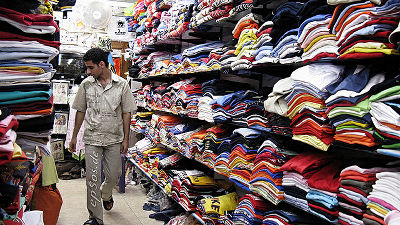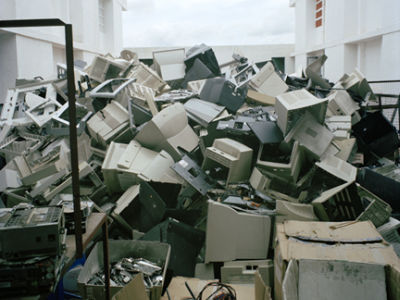When a notebook PC was recycled with a tracking tracker, it was revealed that it was not recycled correctly and was resold or stolen
Digital devices that are difficult for individuals to dispose of, such as PCs, are generally taken over by a recycling company. When the Financial Times, an economic newspaper, investigated how recyclers dispose of old PCs, it was discovered that there were cases where they were sold or stolen without being recycled.
Throwaway Britain: what happens to our old tech? | Financial Times
According to a survey by Material Focus, a recycling support organization, about 30,000 tons of e-waste is illegally shipped out of the UK every year. Much of this electronic waste seems to be transported to developing countries. Separately, it is estimated that 87,000 tons of e-waste are transported to illegal waste disposal sites in the UK each year.
However, all retailers and recyclers claim to do the right thing. Therefore, the Financial Times investigated how unnecessary electronic waste collected by recyclers flows to irregular routes.
The investigation method is simple, prepare an old broken laptop, attach a tracker for tracking to it, delete all the data in the storage, and then ``legal obligation to take back the old device from the customer when purchasing a new product'' It is to have the UK retailers (6 companies) who were found collect them.
The Financial Times took 14 old laptops and sent them for recycling at a retailer's authorized service. It seems that all the retailers who collected it promised to recycle it properly, but it seems that only 10 out of 14 were recycled. Specifically, 3 units were collected by Amazon, 3 units were collected by Apple, 2 units were collected by Dell, 1 unit was collected by Currys, and 1 unit was collected by John Lewis. It seems that the tracking tracker confirmed that a total of 10 notebook PCs, one of which was received, were collected by a recycling company.
John Lewis seems to have collected two notebook PCs, but one was recycled correctly, but the other was brought to the factory of WasteCare, a major recycler in Berkshire, England 1 Locations revealed months later to be in Great Yarmouth Beach, Norfolk, 315 km away. When the Financial Times contacted John Lewis about this matter, the company replied that ``the employee stole the laptop and took it on a trip to a seaside town.'' WasteCare also explains, ``It is rare for waste to be stolen from the office because surveillance cameras that operate 24 hours a day, 365 days a year are attached to the vehicle.''
In addition, it has been confirmed that the two PCs collected by Argos, a British supermarket chain, were both exhibited on the Internet auction site eBay.
``If electronic waste is stolen, it is often illegally exported overseas,'' said Justin Greenaway, commercial manager at Sweep Kuusakoski, an electronics recycling plant. Criminals regularly target recycling centers that are used for recycling.
In addition, according to a report released by Material Focus, a non-profit electronics recycling organization, about 114,000 tons of electronic equipment are stolen in the UK every year during the recycling process.
None of the PCs collected by the Financial Times were illegally exported abroad, but the British Environment Agency said, ``Old electronic equipment may be loaded onto ships for illegal export.'' doing. Specifically, there are 'cases of charity shops handing over donated electronics along with unsold clothing to textile exporters' and 'cases of operators of small industrial units sending waste to West African countries,' he said. said the Environment Agency.
In addition, the Environment Agency points out that there are cases where electronic devices returned to retailers for reasonable reasons such as failure or damage are auctioned in large numbers by retailers or companies that purchase electronic devices from retailers. doing.
In addition, it seems that the British Environment Agency does not have the ability to stop such an illegal flow. In fact, the number of ``surveys on ports suspected of being involved in the export of illegal e-waste'' by the Environment Agency has decreased almost every year since 2016 (172 cases), and in 2022 there will be only 33 cases. only has been done.
A person in charge of the Environment Agency explained about the team that cracks down on illegal exports, ``Given the scale of the problem, the team that cracks down on illegal exports is a relatively small team.'' ``Criminal groups that illegally export e-waste appear to be targeting ports that are not regularly inspected by the Environment Agency,'' he said.
![]()
The Basel Action Network in the United States also conducted a survey in 2017, `` Tracking the location information of 39 broken PCs, monitors, and printers at a recycling center in the UK '', and according to this survey, out of the terminals deposited It turned out that 5 were exported to developing countries. The Basel Action Network is conducting similar surveys in 10 European countries besides the UK, but it seems that the UK had the highest percentage of illegal acts of 'exporting broken electronic devices'.
Related Posts:
in Note, Posted by logu_ii






